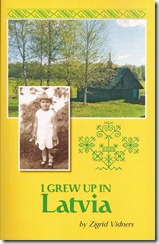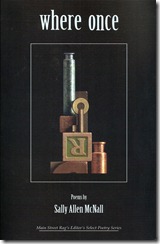Three categories dominated the reviews this year. First, memoirs: "The Story of Another Child's Christmas in Wales" (Lynn Elliott); "I Grew Up In Latvia" (Zig Vidners); "Burning Bears Fall From the Sky" (Peter Edridge); "A Life To Remember" (Gregory Ghica); "From Harlem To Hollywood: My Life In Music" (Van Alexander with Stephen Fratallone); "Google Brain" (Gordon Greb); "Sometimes, Memories Are All We Have" (Shari Edwards).
Next, novels and short stories: "Crown of Dust" (Mary Volmer); "The Great Bay" (Dale Pendell); "Rubber Tuesday" (Phil Coppock and Mrs. Bower's 2008-2009 4th Grade Class); "Captured By Desire" ("Kira Morgan"); "Rose Cottage" (Olivia Claire High); "Voices of a City of Gold: Stories From Oroville, California" (Leslie Hale Roberts); "Murder at the Altar" (Terry Phillips); "Desiree" (Doug Keister); "Heart of a Pirate" (Pamela Johnson); "The Departure Lounge" (Paul Eggers); "The Last Baktun" (Lisa Westwood); "The World Is At Your Feet" (G. Donovan Oakes); "Gene Pool" (Steven Maass and Katherine Terstegen); "Submerged in Darkness" (Shannon A. Hiner).
Finally, the broad category of self-help: "The Pebble Path: Returning Home From a Forest of Shadows" (Jan Hasak); "The Couples Thrival Guide" (Shannon Sheridan); "To Believe Or Not To Believe: The Social and Neurological Consequences of Belief Systems" (Rahasya Poe); "Alligators in the Water Cooler" (Judith Munson); "The Tao of Forgiveness: The Healing Power of Forgiving Others and Yourself" (William Martin); "The Mindful Path Through Shyness: How Mindfulness and Compassion Can Help Free You From Social Anxiety, Fear and Avoidance" (Steven H. Flowers); "Deep Down Things" (Lin Jensen).
Add three volumes of poetry: "Where Once" (Sally Allen McNall); "Vortumna" (Sarkis Shmavonian); "Gorrill's Orchard" (Jeanne E. Clark).
Throw in some history: "Hops and Dreams: The Story of the Sierra Nevada Brewing Co." (Rob Burton); "Durham Locations, Landmarks, Lads and Ladies" (Adriana Farley); "The U.S. Navy's Coastal and Motor Minesweepers, 1941-1953" (David D. Bruhn); "Chico History Minutes" (Verda Mackay).
Politics: "House of Lords" (Charles W. Frank).
Guides: "Mount Shasta Guide to Fun" (Robin Kohn); "The Birds of Bidwell Park" (Roger Lederer); "Light Travel: Photography On the Go" (Tom Dempsey).
And season with kid stuff: "The Famous Nini: A Mostly True Story of How a Plain White Cat Became a Star" (Mary Nethery); "Math Wise!" (Jim Overholt and Laurie Kincheloe); "Crowlyle Finds His Caw" (Vic Sbarbaro); "Love and Logic Money-isms: Wise Words About Raising Money-Smart Kids" (Jim Fay and Kristan Leatherman).
That wraps up the year, except to remind do-it-yourself authors that Publishers Weekly is now featuring quarterly listings of self-published works. Submissions close January 31, 2011. Details: www.PublishersWeekly.com/diy



